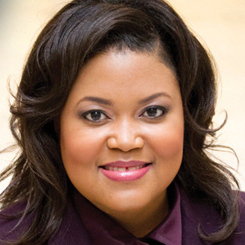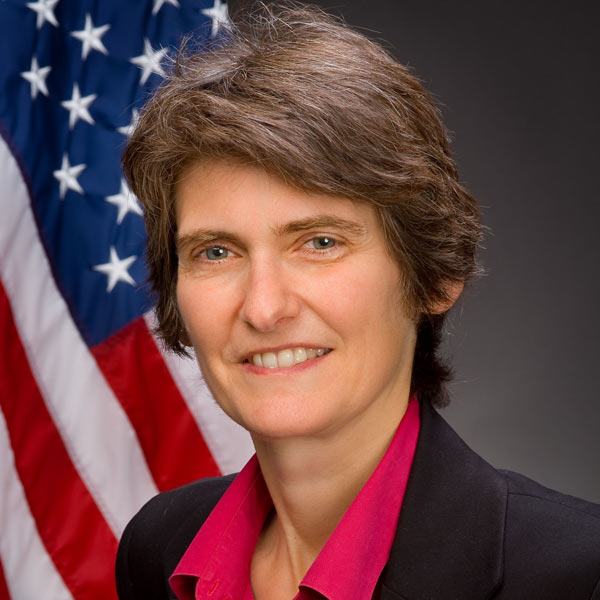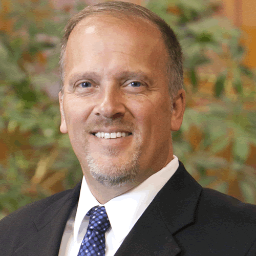By Rich Heidorn Jr.
MILWAUKEE — A top Environmental Protection Agency official on Monday gave the most detailed hints yet about how the agency will revise its proposed carbon emission regulations on existing power plants when the final rule is released this summer.
Janet McCabe, acting assistant administrator for EPA’s Office of Air and Radiation, indicated that the final rule will include relaxed interim goals and informal ways for states in the Midwest and elsewhere to combine their efforts to ease compliance.
McCabe made her comments at the opening session of the Mid-America Regulatory Conference, where Wisconsin officials promised that they will be among the states filing legal challenges to the Clean Power Plan.
McCabe has appeared frequently before gatherings of state regulators and also testified at the Federal Energy Regulatory Commission’s technical conferences on the reliability impacts of the proposed rule. In previous appearances, McCabe made vague promises that the agency was listening to the feedback it has received on EPA’s proposal. (See MISO, SPP Stakeholders Developing Trading Plan to Comply with EPA Carbon Rule.)
Rule Sent to White House
With the final rule nearing release — it was sent to the White House for review last week — McCabe was a bit more forthcoming.
She indicated support for the Midcontinent States Environmental and Energy Regulators (MSEER), which has been developing a mechanism that would allow utilities to trade emission allowances within and across state lines. McCabe said efforts by MSEER and others to create “trading ready” compliance plans that don’t require time-consuming memoranda of understanding among governors have been “very instrumental in our thinking.”
“What an excellent idea that is, and we’re certainly pursuing that,” McCabe said.
McCabe acknowledged the widespread opposition to EPA’s proposal that states meet most of their 2030 emission targets by 2020, which critics have said would impede regional compliance and result in stranded costs for generators shuttered before the end of their economic lives. “We certainly, certainly heard that. We heard that loud and clear,” she said.
She also acknowledged fears that the rule might subject state energy efficiency and renewable portfolio standards to federal oversight, saying, “I think you’ll see more thought on that.”
Wisconsin’s Welcome
McCabe spoke after Mid-Atlantic Conference of Regulatory Utilities Commissioners attendees received a welcome from Wisconsin Lt. Gov. Rebecca Kleefisch, who warned that the EPA rule will dramatically raise electric prices, damaging the state’s ability to use its lower rates to attract industry from Illinois and other states. Under the proposed rule, Wisconsin would be required to cut its carbon emissions by 32% from its 2012 levels.
Kleefisch introduced Attorney General Brad Schimel, who all but guaranteed that the state would be among those challenging the final rule. Schimel said EPA’s proposal had “serious legal flaws” and set unfairly harsh goals for the state, whose economy is dependent on energy-intensive industry.
McCabe acknowledged the Midwest’s heavy reliance on coal, and promised that “affordability is very much on our minds as well.” She said the agency has proven that environmental regulation is compatible with economic growth, saying air pollution has been reduced by 70% since 1970 while the economy grew “by orders of magnitude.”
She also responded to criticism that the proposed state targets — which require some states to cut emissions much more than others — are inequitable, saying “we’re looking hard at that.”
She rejected suggestions that the agency was overreaching, saying it was charged with enforcing laws enacted by Congress. She said the rule would withstand legal challenges, saying it was “very solidly based in the Clean Air Act.”
“EPA is not an energy agency. We’re not trying to be an energy agency,” she continued. “We are an agency that protects the public health, and in this case that means addressing air pollution that contributes to climate change.”
In a brief interview afterward, Schimel said he heard nothing from McCabe that made it less likely that Wisconsin will challenge the rule. “She conflates clean air with climate change. That’s not a good sign for where they’re going,” he said.
FERC Commissioner Plays Peacemaker

Federal Energy Regulatory Commissioner Colette Honorable, who spoke after McCabe, urged state officials not to take absolutist stands.
She said states challenging the rule’s legality should also be prepared to respond if it is upheld in the courts. Some opponents have urged states not to file compliance plans; EPA has said it will impose a federal implementation plan for such states.
“I don’t want to do anything to harm jobs; I know you don’t either. I don’t want to do anything that harms reliability or ensuring just and reasonable costs; I know you don’t either. Having said that, we have a job to do,” Honorable said.
“There’s a saying that metal sharpens metal. If we continue to stay engaged we will be in the best possible position to be prepared for whatever happens with the Clean Power Plan. I’m … convinced that we will be able to strike the right balance because of what we continue to hear from you.”
Rule Survives First Legal Challenge
The Clean Power Plan survived its first legal challenge on Tuesday. In a unanimous decision, the three-judge D.C. Circuit Court of Appeals found that a challenge to the rule by 12 states was brought too early, as it is still being finalized.
“Petitioners are champing at the bit to challenge EPA’s anticipated rule restricting carbon dioxide emissions from existing power plants,” Judge Brett Kavanaugh said. “But EPA has not yet issued a final rule. It has issued only a proposed rule.
“They want us to do something that they candidly acknowledge we have never done before: review the legality of a proposed rule. But a proposed rule is just a proposal. … We do not have authority to review proposed agency rules.”
The court’s remarks in its ruling mirrored the skepticism it expressed when it heard oral arguments in April. (See Federal Briefs, “Judges Appear Skeptical of Challenge to EPA Air Rules.”)





